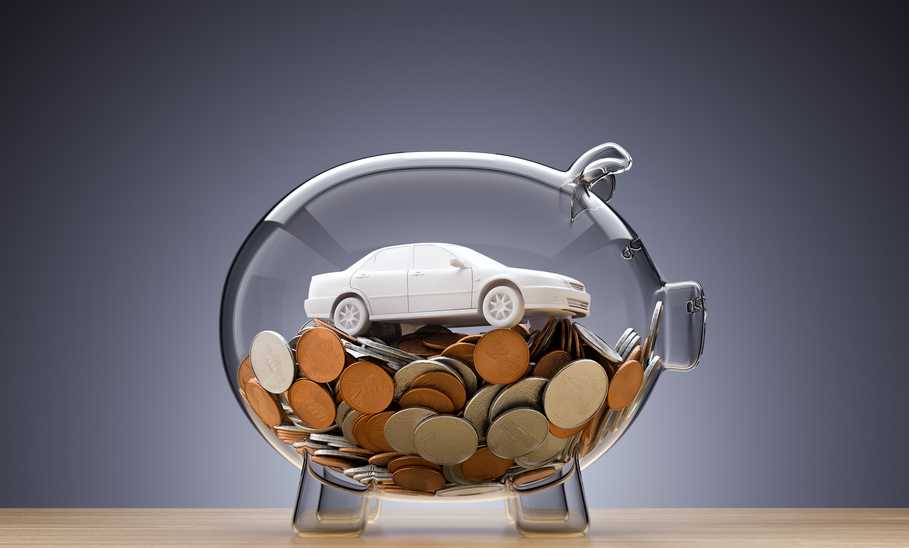How Much Is Your Car Worth and What Are Your Options After Appraisal?

Our evaluations and opinions are not influenced by our advertising relationships, but we may earn a commission from our partners’ links. This content is created by TIME Stamped, under TIME’s direction and produced in accordance with TIME’s editorial guidelines and overseen by TIME’s editorial staff. Learn more about it.
Have you ever asked yourself, “How much is my car worth?” The answer may be as easy as using an online car value estimator. In just a few minutes, by inputting basic information about your vehicle, you’ll be provided with several valuations.
The information will be useful if you plan to trade in your vehicle at a dealership, sell it to a private party, want to know how much insurance you need, or to justify refinancing your auto loan. Securing a reliable estimate can help you shop for financing or simply budget intelligently for car expenses.
Time.com has teamed up with the auto refinance experts at RateGenius® to find you a more affordable monthly car payment. Applying to refinance your vehicle loan takes just minutes and saves drivers $101/mo. on average.*
The more traditional ways to estimate the value are to either check the prices of cars for sale in your area or bring your vehicle into a dealership for a formal appraisal.
While both can be a good starting point, neither is entirely accurate.
Prices of cars listed for sale are just asking prices. Sellers typically set prices on the high side, fully expecting to come down. That’s why car sale listings are an inaccurate picture of actual values.
An appraisal by a car dealership can be more solid, especially if you ultimately plan to trade in your vehicle. The dealership will give you a value on the car, and a certain amount of time to trade it in at that price.
One popular source for fast car appraisals is the CarMax Sell My Car program. You can sign up online, make an appointment to have your car appraised, and you’ll then have seven days to sell your car to CarMax at its appraised value.
The disadvantage of using a car dealership is that the value you get is unique to that dealer. It won’t apply if you decide to either sell your car yourself or trade it in with another dealership. Generally, dealer appraisals give you a value on the lower end of the scale as they’ll want to make a profit when they sell your car. It’s very unlikely they’ll sell it for the price they gave you.
A more objective way to value your car is to use online car value estimators. They’re quick and easy and will provide you with a more objective estimate of value.
A car value estimator is an online tool provided by an authoritative source that specializes in car valuations.
You’ll be required to provide information about your vehicle. Once you do, the car value estimator will send one or more values in a matter of seconds.
You’ll typically be provided with a detailed listing of the valuation. It may include the trade-in value of the vehicle, the likely value in a sale to a third party, or the dealer’s resale value.
You can (and should) save the estimate. If you’re just looking to get updates on the most current valuation, you can save copies of periodic estimates to determine the value trend over time.
The estimate can be even more valuable if you plan to sell your car—whether directly to a third party or by trading in your vehicle at a dealership. At a minimum, you’ll know whether the trade-in value you’re being offered by a dealer is reasonable.
There are many price guides to estimate the value of your car.Four of the most popular are:
If you’re just looking to get a ballpark estimate of what your car is worth, you can use a single estimator. But if you plan to sell or trade in your car, it pays to check two or three.
Each estimator may provide a slightly different value than the others. That’s because they are just estimates, and valuing a car isn’t 100% scientific. Using several estimators lets you establish a range for selling or trade-in prices.
An appraiser or a car value estimator will use the following factors to determine the value of your vehicle:
The above information will be analyzed, and a series of values will be provided depending on the purpose of the estimate. Bear in mind that in addition to the above, in the case of an accident or damage, a diminished value claim may also factor into the calculation of your used car's value.
Expect to provide both basic and detailed information. The more data you supply, the more reliable the value estimate will be.
Be prepared to supply the following:
Determining the condition of a vehicle is something of a gray zone. If you’re trying to sell your car, you’ll want to present it in the best light possible. But if you exaggerate the condition, you’ll get an excessive valuation that is useless because it doesn’t accurately reflect the value of your car.
Be as objective as you can, without overcompensating in the other direction, either. The best price will be the most accurate one. And a realistic assessment of your vehicle’s condition is the most important step in getting that best valuation.
Most car value estimators will provide you with three values:
If you’re looking to dispose of your vehicle, you’ll be most concerned with the trade-in value and the private resale value. The dealer resale value isn’t relevant, since it represents a price you probably can’t get for your vehicle.
Once you have one or more car value estimates, you should compare the values you receive with what’s available in your area.
Check the asking prices on vehicles similar to yours. They should be listed on local ad media, such as Craigslist, Autotrader, and Facebook Marketplace.
The values you see advertised will likely represent the upper limit for your price. That’s because vehicles being offered for sale are typically priced at seller-friendly levels rather than the price at which they’ll actually sell.
If you have the time to wait, you can ask for a similar price to what you’re seeing advertised. But if you need a quick sale, pricing your vehicle at its estimated private party value will be the best strategy.
You should also be aware that none of the cars you see advertised for sale will be identical to yours. The car may have more or fewer options than yours or be in better or worse condition. Each of these things can have a major impact on the price a vehicle fetches.
Once you have your appraisal in hand, you’ll need to move quickly. The value of the car could drop for several reasons. One is age. Even 30 days can reduce some of a vehicle’s value. Another is mileage. Adding another thousand miles to your odometer can also lower its value.
Then there’s the condition factor. If, after the appraisal, your car is involved in an accident—or even if it gets a dent—the value will drop immediately, depending on the extent of the damage. There are four situations for which moving soon after an appraisal to take advantage of its highest value is especially important.
If you're contemplating refinancing your auto loan, the appraised value of your car will play a significant role. Lenders will consider the car's value versus the remaining balance on your loan when determining whether to approve the refinance. If the vehicle's value is significantly higher than the loan balance, you may qualify for more favorable terms, potentially lowering your monthly payments or interest rate.
Insurance is another important consideration, especially in the event of any damage to the vehicle post-appraisal. Use the appraisal to determine whether you have enough car insurance to safeguard your vehicle's value. Comprehensive and collision coverage, for example, will cover repair costs if your car is damaged in an accident, mitigating the immediate drop in value that might otherwise occur.
If you’re getting an appraisal from a dealership, it will generally give you a certain number of days within which you must complete the trade-in.
If you’re selling to a private party, you’ll want to have a fresh value estimate available when prospective buyers come to look at the vehicle. A 90-day-old estimate may not give buyers that warm and fuzzy feeling that makes them believe you and pay your asking price—or something close to it.
The trade-in value is the price you can expect to get for your car when it is traded into a dealership. It may be sufficient to cover the entire down payment on a new car or just a part of it.
The private party value is the price you can expect to receive for your car when it is sold to another person. This value will be higher than the trade-in value because it represents the true market value of the vehicle.
There may be differences in the data sources used by each estimator. For example, Kelley Blue Book has its own database, and it’s sometimes considered more reliable than the alternatives. Other estimators may rely on the Black Book, which is focused more on dealership values. The valuation difference between the two may be slight, but it will be noticeable.
Another differentiator is the range of questions asked, particularly regarding the condition of your vehicle. One estimator may have a larger number of condition levels to choose from, which could result in a different valuation than one offering fewer condition levels.
In general, selling your car is likely to result in more cash than trading it in. But whether that can happen depends on how confident you are in your ability to sell the vehicle. That will require advertising it, which may cost money out-of-pocket, and plenty of patience until the right buyer comes along.
If you’re in a hurry to replace the vehicle, trading it in will be the better strategy. You can bring the car to the dealership, it will give you a value on the spot and allow you to use it for purchasing a new vehicle—assuming your current vehicle is worth more than any financing still owed.
You can. But if you do, you’ll need a reliable value estimate more than ever. Most important, you’ll need to know if the value of your vehicle exceeds the remaining loan balance. If the value is higher, you should receive a trade-in allowance from the dealership.
If you don’t get your own independent estimate, the dealer may give you a lowball value as a trade-in. It may assert the loan balance is higher than the car value, giving you a negative trade-in.
When that happens, the dealership will still accept your car as a trade-in, but it will roll the excess debt amount (the amount it claims the loan exceeds the car’s value) onto any new financing on the new vehicle you’re purchasing. That’s a bad deal that’s best avoided.
*This value was calculated by using the average monthly payment savings for our customers from January 1, 2022 through December 31, 2022.
The information presented here is created by TIME Stamped and overseen by TIME editorial staff. To learn more, see our About Us page.



